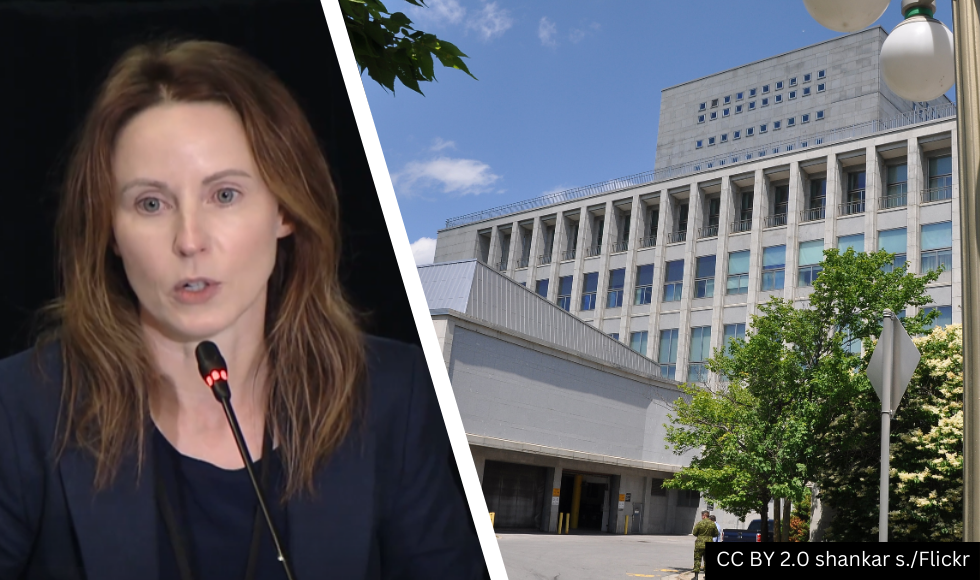‘Forbidden Intimacies’: In conversation with Melanie Heath about her new book
In the western world, polygamous marriages exist outside the threshold of tolerance. Often criminalised, these relationships are pushed underground, potentially making family members more vulnerable.
But as different populations, such as the fundamentalist Mormons in North America and West African immigrants in France, practice polygamous relationships, how does the state regulate them, and why?
Forbidden Intimacies: Polygamies at the Limits of Western Tolerance, a new book by Melanie Heath, associate professor in the Department of Sociology, explores the regulation of polygamous relationships in Canada, the United States, France and Mayotte, looking to understand how the state deals with the practice, and what it means for the families living in these relationships.
What triggered your interest in this research?
My research has broadly examined how the state regulates intimacy and the consequences of this regulation on perpetuating social inequalities. My first book, One Marriage Under God: The Campaign to Promote Marriage in America (New York University Press, 2012), documents the “boundary work” in state efforts to promote heterosexual marriage that sought to continue the historical ban on same-gender marriage in the United States, and that pursued policies to compel impoverished single mothers to marry. I became interested in the issue of regulating polygyny—one man married to more than one wife—to further theorize what intimacies the state understands to be legitimate, and the consequences of forbidding intimacies that are deemed inegalitarian and harmful.
After receiving a grant in 2010, I began research in Vancouver after the province of British Columbia submitted questions to the courts asking for an advisory opinion on the constitutionality of banning polygamy in Canada. After receiving a further grant 2012, I expanded the research to compare government regulation in Canada, France, Mayotte (an island in the Indian Ocean that is department of France), and the United States. Overall, my ethnographic research included a total of 145 interviews with 165 participants.
The issue of polygyny is a fascinating topic but also a controversial one. Many have asked ‘why did you choose to study this’? Sometimes I wondered myself. Those who condemn polygyny often do so stridently, which made it challenging to study both sides. In the end, this research was rewarding, as it allowed me to think deeply about the relationship between the state and intimacy.
What is the legal history of polygamy in the countries you studied?
The legal history of polygamy is tied to colonialism in France and settler colonialism in Canada and the United States.
France’s colonial past focused not only on regulating family in metropolitan France but in its colonies in North and West Africa, a history that has continued to shape its conceptualization of the social contract. Over time, polygyny came to represent the heart of ‘Muslimness’. With the disintegration of France’s empire and migratory flows of African male workers from former colonies, the problem of polygyny came to metropolitan France in the 1970s and 1980s, when its family reunification policies authorized immigration by the members of polygamous families to join male workers from West Africa brought over as cheap labor. There are an estimated 200,000 people living in polygyny in France. In Mayotte, another former colony, polygamy was banned when it became a French department, and its population became French citizens in 2011.
In Canada and the United States, polygyny and polyandry—one woman married to more than one husband—were historically practised by Indigenous populations. When the Europeans arrived, they condemned the practice and sought to impose Christian-model monogamy on these families. Once white Mormon families began practicing polygyny in the 1800s, state regulation heightened into a moral panic, and both governments passed laws prohibiting polygamy. Legislators and missionaries were key players in securing the ascendancy of lifelong, monogamous, heterosexual marriage as the ideal of each nation’s identity.
Why do governments ban polygamy?
As the title of the book suggests, governments ban polygamy because it exists at the limits of ‘western’ tolerance. Given that polygamy is often attributed to African cultures and populations, those who practice it are often marked as a racialized other. I provide evidence in the book of how intimacy, as a feature of all-important relationships, is shaped by what is determined to be intolerable. The book reveals how polygyny becomes the antithesis of intimacy itself.
An important example of the reasoning behind banning polygamy is the 2011 British Columbia Supreme Court reference case that determined that polygyny is inherently harmful to those who practice it. More strikingly, the justice determined that polygyny is inherently harmful to society and to the institution of marriage. His argument was based on the idea that the gender inegalitarian nature of polygyny threatens enlightened ideals of egalitarian families and democratic society, juxtaposing intimacy itself against ‘barbaric cultural practices.’ As the Zero Tolerance for Barbaric Cultural Practices Act, passed in 2014, states: “Canada’s openness and generosity does not extend to…polygamy”.
What challenges do governments face in regulating the practice?
Governments struggle to regulate polygynous families on their territories. They tend to police a monolithic ‘polygamy’, when in fact there are various ways to live in a polygamous relationship based on social context, geography, among other factors. Forbidding polygamous relationships often pushes these families underground and makes women and children even more vulnerable.
This was certainly the case in France, where most of the families living in polygamous households had migrated from former colonies. In 1993 the Pasqua law banned living in a polygynous household, and the French government sought to implement a policy where men must ‘decohabit’—live with only one wife—or lose their ten-year residence permit. One woman I interviewed who worked extensively with these families explained the serious consequences of the policy of decohabitation: ‘They are obliged to lie, they are obliged to hide, they are obliged to say this, to say that, but none of it is true!’ I found that the worst-case scenario was when second or third wives had no existence in the eyes of French law due to hiding or even taking on the name and identity of the first wife. If the goal is to aid women and children in these families, banning polygamy often has the opposite effect.
Despite attempts to ban polygamous relationships, why do they continue to exist?
This is an excellent question. Polygamy is a multidimensional phenomenon, and it is difficult to identify a single reason why these families persist in the face of bans and possible prosecution. Being a deeply rooted sociocultural practice for some populations and even being permitted in some religions, such as in Islam, or required in others, such as in fundamentalist Mormonism, certainly contributes to its persistence. Many women I interviewed actively chose their polygamous households. Some described how much they loved having sister wives with whom they could share their household, childcare, and work responsibilities.
In all these families, jealousy was certainly a common theme, but I found it to be part of a broader structure of what I call labyrinthine love, pointing to how intimacy is structured based on the intersections of love, jealousy, and commitment. In polygamy, there is a range of feeling structures from a focus on honesty and communication, to more coercive forms, such as when a wife learns of her husband’s marriage to another woman after the fact. In the end, these are families—some happy, some unhappy, some violent. Perhaps it shouldn’t be so surprising that a family form that works for some and not for others continues to persist, even as governments and activists seek to root it out.
View more information about Melanie Heath’s book.
Departmental NewsRelated News
News Listing

Associate Professor Chelsea Gabel named Tier 1 Canada Research Chair
Awards, Departmental News
7 days ago

Political Science Professor Thomas Marois named Tier 1 Canada Research Chair
Awards, Departmental News
7 days ago

Political Science associate professor Andrea Lawlor testifies at Canadian Commission on Foreign Interference
Departmental News
November 12, 2024
